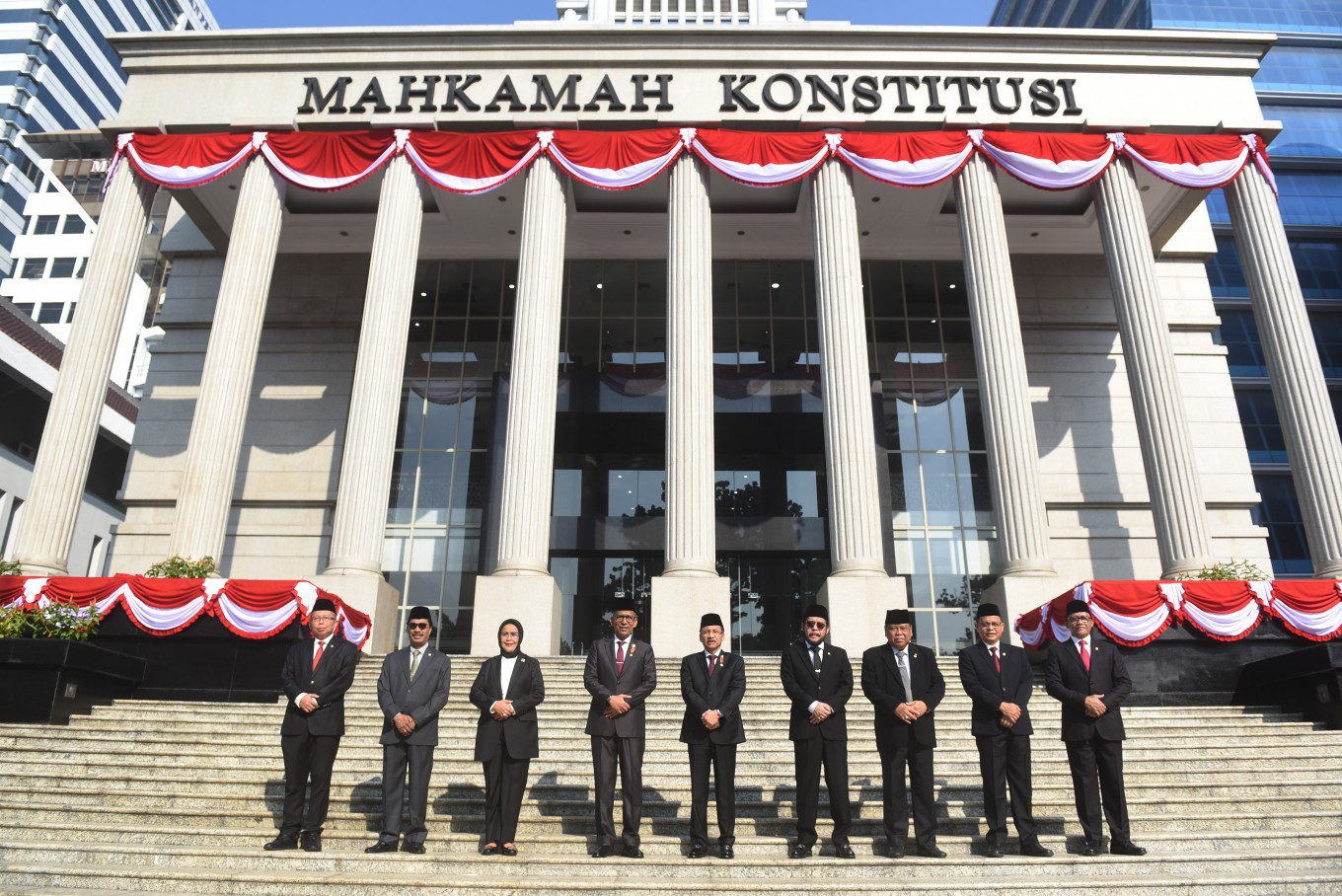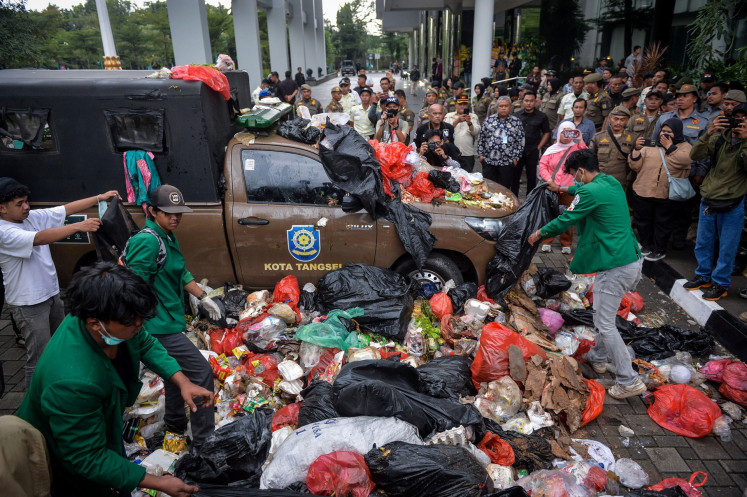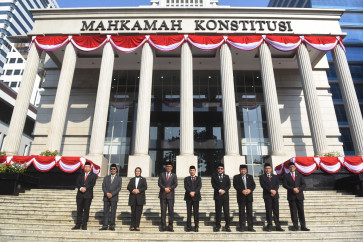Popular Reads
Top Results
Can't find what you're looking for?
View all search resultsPopular Reads
Top Results
Can't find what you're looking for?
View all search resultsAnalysis: Constitutional Court upholds freedom of expression
Change text size
Gift Premium Articles
to Anyone
 Constitutional Court Chief Justice Suhartoyo (center) accompanied by constitutional judges (from left to right) Arsul Sani, Daniel Yusmic Pancastaki Foekh, Enny Nurbaningsih, Saldi Isra, Anwar Usman, Arief Hidayat, M. Guntur Hamzah and Ridwan Mansyur take a group photo in front of the constitutional pillars after attending the commemoration ceremony of the 21st Anniversary of the Constitutional Court at the Constitutional Court Building, Jakarta, on Tuesday, June 13, 2024. Chairman of the Constitutional Court Suhartoyo in his mandate said the level of public trust and the image of his institution was getting better, especially after deciding the dispute over the results of the 2024 presidential and legislative elections. (ANTARA FOTO/Indrianto Eko Suwarso)
Constitutional Court Chief Justice Suhartoyo (center) accompanied by constitutional judges (from left to right) Arsul Sani, Daniel Yusmic Pancastaki Foekh, Enny Nurbaningsih, Saldi Isra, Anwar Usman, Arief Hidayat, M. Guntur Hamzah and Ridwan Mansyur take a group photo in front of the constitutional pillars after attending the commemoration ceremony of the 21st Anniversary of the Constitutional Court at the Constitutional Court Building, Jakarta, on Tuesday, June 13, 2024. Chairman of the Constitutional Court Suhartoyo in his mandate said the level of public trust and the image of his institution was getting better, especially after deciding the dispute over the results of the 2024 presidential and legislative elections. (ANTARA FOTO/Indrianto Eko Suwarso)
T
he Constitutional Court has taken another step in defense of freedom of expression from the draconian Electronic Information and Transactions (ITE) Law. The court’s decision offers additional assurance of civil liberties following last year’s legislative amendments aimed at addressing the concerns over digital authoritarianism by the government, which was behind the passing of the legislation in the first place.
The court partially upheld a judicial review petition filed by Daniel Frits Maurits Tangkilisan, a resident of Karimunjawa, Jepara regency in Central Java, against an article in the amended ITE Law, which stipulates criminalization of defamation on social media. The article is problematic due to its multiple interpretations, which allow room to public officials to sue critics, as in the case of Daniel.
Daniel, an environmental activist from the Kawal Indonesia Lestari Coalition (Kawali), was previously found guilty by the Jepara District Court for posting a video criticizing the condition of fishponds in Karimunjawa. However, the verdict was later overturned by the Semarang High Court.
The Constitutional Court’s ruling, announced during a plenary session presided over by Chief Justice Suhartoyo on April 29, underscores the importance of protecting public discourse.
In delivering the court’s legal considerations, Justice Arief Hidayat emphasized that expressions of criticism addressed under Article 27A of the 2024 ITE Law should be recognized as legitimate forms of public oversight, correction and input on matters of public interest.
As such, the court ruled that the enforcement of Article 27A must be aligned with Article 310(1) of the Criminal Code, which pertains strictly to defamation of private individuals. In other words, the article may only be applied to defamatory acts targeting individual persons.
Justice Arief also clarified that both Article 27A and its corresponding penalty provision under Article 45(5) are considered complaint-based offenses, meaning prosecution can only proceed if the aggrieved individual personally files a report.

















